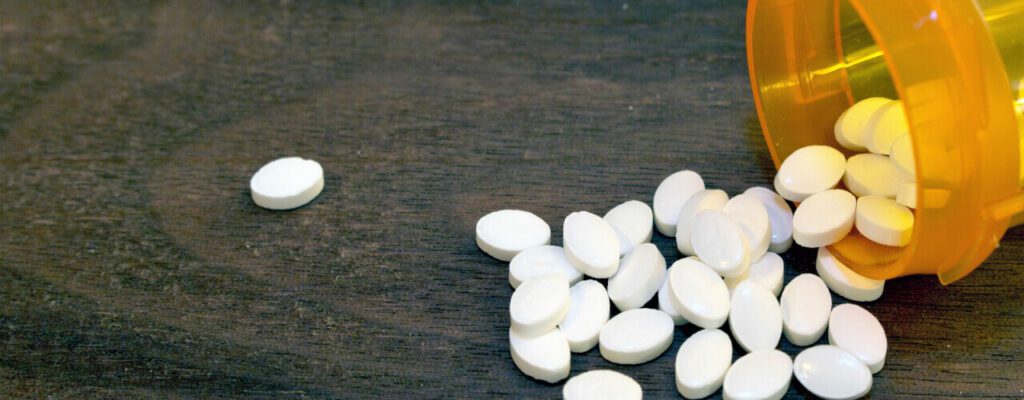Thinking of Opioids for Pain Relief? You Should Think Again

Find Safer, More Effective Relief with Physical Therapy
Living with pain? If so, you may have fallen down the rabbit hole of turning to opioids for relief.
This is the treadmill that many chronic pain sufferers find themselves walking, month after month and year after year.
If you’re tired of exhausting your patience, wellness and wallet, maybe it’s time you talked to your doctor about switching to physical therapy as your primary pain management strategy.
Prescription pain medications can only do so much to keep your suffering at bay – and in the case of opioids, you may find yourself purchasing larger amounts more frequently just to keep up with your ever-increasing tolerance to these powerful drugs.
Physical therapy can help you govern your pain without drugs, giving you a chance to break away from your reliance on opioids. Our innovative care strategies at Apex Physical Therapy will help you find quick relief.
How can physical therapy help relieve my pain?
Physical therapy can help you get a handle on your pain so that you don’t need opioids anymore.
Of course, you should only discontinue high doses of opioids under professional medical supervision (to prevent a potentially dangerous withdrawal).
In the meantime, however, our physical therapist can work with you on treating the biomechanical problems that caused your pain in the first place.
Here are just a few of the physical therapy modalities that can help you conquer your pain:
- Transcutaneous electrical nerve stimulation (TENS) uses electrical energy to block pain signals to nerves.
- Laser therapy can ease pain caused by injuries, arthritis, muscular strain, tendinitis, or neuropathy.
- Massage therapy can control painful muscle spasms, help the tissues expel inflammatory substances, and direct more blood and oxygen to an injury.
- Exercises can increase your pain-free range of motion, strengthen the muscles that support your body, and increase blood flow to reduce inflammation.
Why are opioids so dangerous?
There’s no disputing the fact that pain medication is a profitable industry.
In addition to the enormous sums spent by consumers on over-the-counter pain relievers, the worldwide market for opioid drugs has been estimated at $25.4 billion – and it’s expected to keep growing.
Opioids prevent pain signals from reaching the brain, enabling them to combat even the most severe pain.
Unfortunately, the price of frequent opioid use far exceeds the money you pay for these drugs. The more you use opioids, the more likely your body is to develop a tolerance against them.
As a result, you need to keep taking more frequent and/or more potent doses to achieve the same degree of pain relief. This is a fast, potentially deadly path to addiction.
Don’t assume that you’re getting a good deal from non-addictive pain relievers, by the way.
Milder drugs such as ibuprofen, aspirin, and acetaminophen may not get you “hooked,” but their painkilling effects are short-lived, forcing you to keep dosing yourself every few hours.
These medicines can also cause health problems with frequent or heavy use, with risks ranging from stomach bleeding to liver failure.
Discover how a physical therapist can help with long-term pain relief
Instead of emptying your pockets on frequent drug refills that don’t even address the source of your discomfort, ask your doctor whether physical therapy might help you wean yourself off of opioids or other medications. (You may need medical supervision to reduce heavy opioid use safely.)
An experienced physical therapist can examine the reasons for your pain and then devise a targeted, personalized pain management plan.
Here are just a few of the ways physical therapy can replace all those bottles of pills:
- If you suffer from crippling arthritis pain, physical therapy exercises and massage therapy can help you control joint pain and stiffness.
- Severe neck or back pain can be managed through a combination of strength training, stretching exercises, and chiropractic adjustment.
- Chronic headache/migraine pain can be reduced through a combination of massage, cervical spinal adjustment, and lifestyle or dietary changes to help you avoid known headache or migraine triggers.
- Chronic muscle spasms respond well to cold laser therapy, massage therapy, and heat/cold therapy.
- Chronic nerve pain can be controlled with a technique called transcutaneous electrical muscle stimulation (TENS), which uses electrical impulses to intercept pain messages. Cold laser therapy can ease neuropathy symptoms and promote nerve healing.
Ready to leave opioids behind?
If you’re going to invest time, effort and money into feeling better, do it in a way that actually helps your body for safer long-term solutions.
If your doctor agrees that physical therapy can help you ditch the drugs, contact our physical therapist to schedule an initial appointment and work out a pain management program!
